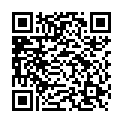|
|
|
| Module code: PIB-CHI1 |
|
|
2V (2 hours per week) |
|
2 |
| Semester: 5 |
| Mandatory course: no |
Language of instruction:
English |
Assessment:
Written composition with presentation
[updated 19.02.2018]
|
EE-K2-543 (P400-0001) Energy system technology / Renewable energies, Bachelor, ASPO 01.04.2015
, optional course, general subject, course inactive since 30.09.2022
KI572 Computer Science and Communication Systems, Bachelor, ASPO 01.10.2014
, semester 5, optional course, non-technical, course inactive since 30.09.2022
KIB-CHI1 (P400-0001) Computer Science and Communication Systems, Bachelor, ASPO 01.10.2021
, semester 5, optional course, non-technical, course inactive since 30.09.2022
KIB-CHI1 (P400-0001) Computer Science and Communication Systems, Bachelor, ASPO 01.10.2022
, semester 5, optional course, non-technical, course inactive since 30.09.2022
MAB.4.2.1.23 (P400-0001, P620-0563, P620-0567) Mechanical and Process Engineering, Bachelor, ASPO 01.10.2013
, semester 4, optional course, non-technical, course inactive since 30.09.2022
MST.CA1 (P400-0001) Mechatronics and Sensor Technology, Bachelor, ASPO 01.10.2012
, optional course, non-technical, course inactive since 30.09.2022
MST.CA1 (P400-0001) Mechatronics and Sensor Technology, Bachelor, ASPO 01.10.2019
, optional course, non-technical, course inactive since 30.09.2022
MST.CA1 (P400-0001) Mechatronics and Sensor Technology, Bachelor, ASPO 01.10.2020
, optional course, non-technical, course inactive since 30.09.2022
PIBWN61 (P400-0001, P610-0555) Applied Informatics, Bachelor, ASPO 01.10.2011
, semester 5, optional course, not informatics specific, course inactive since 30.09.2022
PIB-CHI1 (P400-0001) Applied Informatics, Bachelor, ASPO 01.10.2022
, semester 5, optional course, not informatics specific, course inactive since 30.09.2022
MST.CA1 (P400-0001) Mechatronics and Sensor Technology, Bachelor, ASPO 01.10.2011
, optional course, non-technical, course inactive since 30.09.2022
|
30 class hours (= 22.5 clock hours) over a 15-week period.
The total student study time is 60 hours (equivalent to 2 ECTS credits).
There are therefore 37.5 hours available for class preparation and follow-up work and exam preparation.
|
Recommended prerequisites (modules):
None.
|
Recommended as prerequisite for:
|
Module coordinator:
Prof. Dr. Thomas Tinnefeld |
Lecturer: Prof. Dr. Thomas Tinnefeld
[updated 21.06.2012]
|
Learning outcomes:
- Introduction to Pinyin, the phonetic Chinese alphabet
- Training of basic listening comprehension skills in relation to lexemes and idiomatic expressions discussed in the course
- Ability to communicate in narrowly defined situational contexts such as greeting someone, providing personal information or introducing one´s own family
- Ability to recognize contextually validated Chinese lexemes and expressions in Pinyin
- Development of a basic understanding of Chinese script with regard to radicals and the direction of writing
- Ability to write one´s own Chinese name in the correct writing direction
- Raise awareness for the Chinese culture in comparison to one´s own culture
[updated 24.02.2018]
|
Module content:
- Introduction to Chinese
- Basic greeting phrases
- Introduction to the pronunciation system of Mandarin Chinese (Hanyu-Pinyin)
- Introduction to the Chinese script system (radicals and writing direction)
- Questions about one´s own Chinese name in oral and written form
- Chinese numbers from 1 to 999
- Asking about the date (day, month, year)
- Asking what time it is
- Introducing oneself in Chinese
- Awareness for the Chinese culture (e.g. Chinese festivities)
[updated 05.10.2020]
|
Teaching methods/Media:
- Presentations by the lecturer
- Partner work
- Group work phases where work assignments will be completed by the students
- Multimedia language lab
- Short presentations by the students
- Internet research
[updated 19.02.2018]
|
Recommended or required reading:
- Use of free materials developed by the teacher (not textbooks)
- Listening comprehension texts (audio and/or video)
- Internet resources
- Subject-related multimedia programs
- Additional materials on vocabulary and grammar
[updated 19.02.2018]
|
Module offered in:
SS 2024,
SS 2023,
SS 2022,
WS 2021/22,
SS 2021,
...
|


